India’s COVID crisis: Travel between India and Australia paused as COVID crisis worsens
India’s coronavirus surge has been driven by a ‘far more lethal’ mutation, a doctor has warned, as flights to Australia have been grounded after crunch talks. WARNING: GRAPHIC
The skyrocketing number of COVID-19 cases in India is likely driven by a “far more infectious and probably far more deadly” variant — and is driving hospitals to “beyond [a] crisis point,” a top physician warned on Tuesday.
Dr. Zarir Udwadia, who works in Mumbai hospitals and consults for the government, said he has seen “ward after ward full of patients struggling to breathe on ventilators of different forms and shapes.”
“It is really clear to me as it is to any physician, that this wave, perhaps variant-driven, is far more infectious and probably far more lethal than the first wave,” he told BBC Radio.
As hospitals become overwhelmed with patients, Udwadia warned that the situation is “beyond crisis point.”
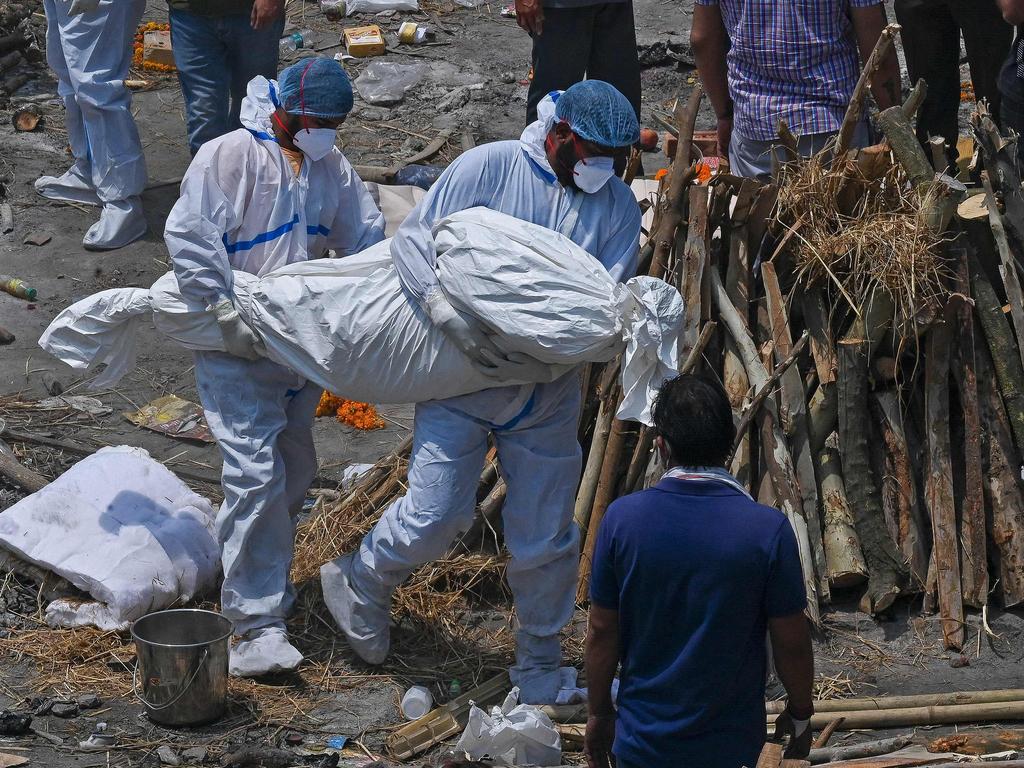
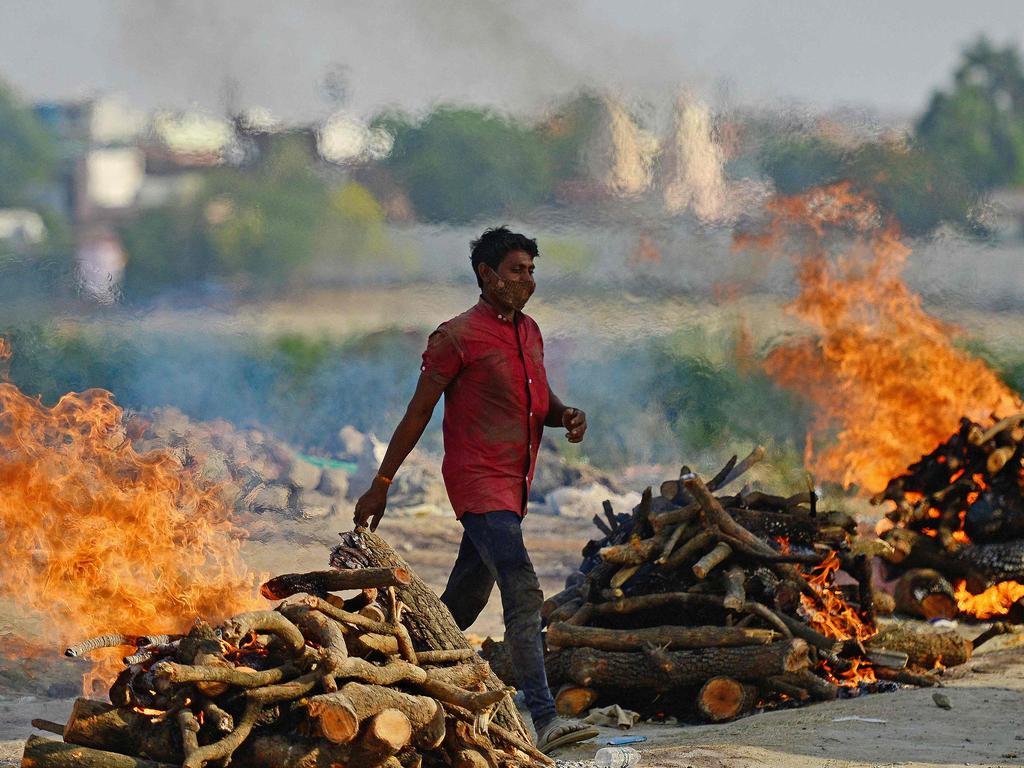
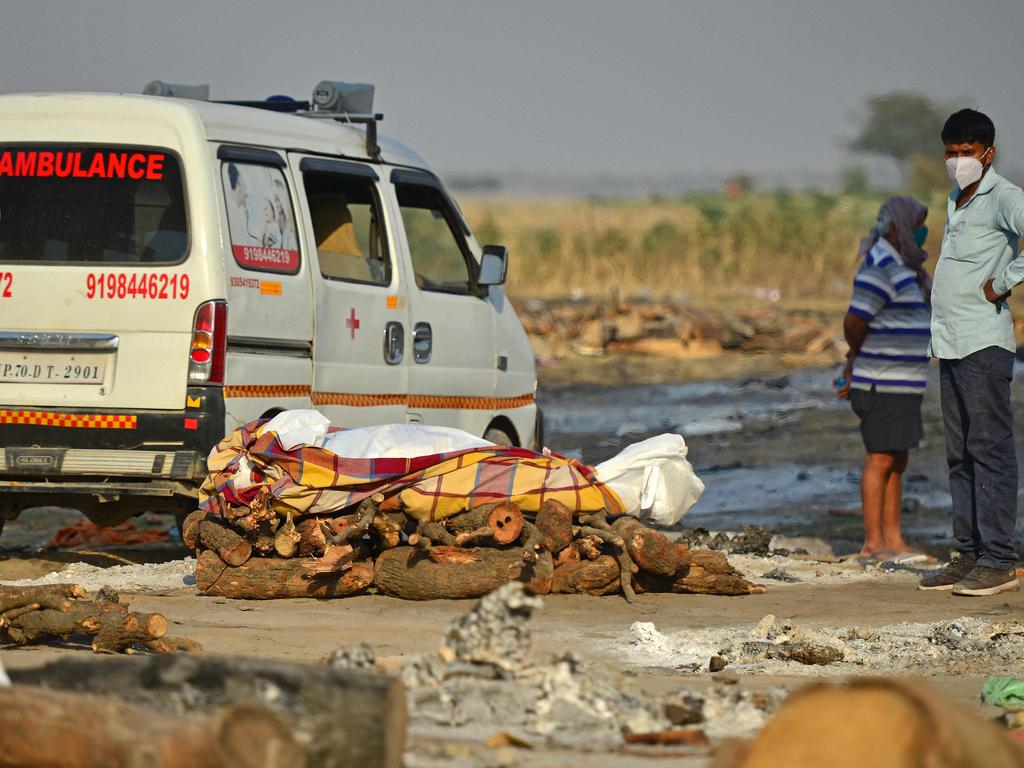
The surging cases have left hospitals experiencing shortages of supplies, including oxygen, as patients wait in line to seek treatment.
“This virus has a country of 1.4 billion firmly in its stranglehold and it’s really exposed our threadbare health care system and our failure of leadership,” Dr Udwadia said.
The physician also blamed “complacency” for the latest wave of cases in the country, which recorded more than 350,000 new infections on Tuesday.
“We let down our collective guard, and we were urged to by our leaders. Instead of being asked to be vigilant, we heard self-congratulatory declarations of victory,” he said.
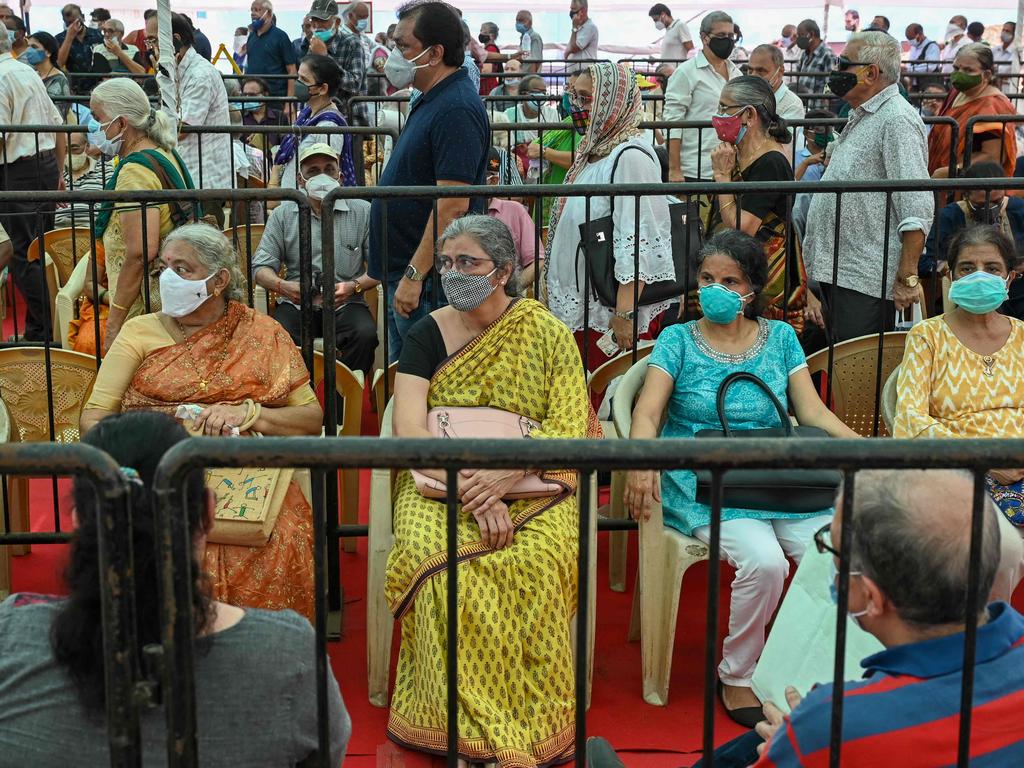
“We thought we had won, because luck seemed to be conquering the first wave and all of that has been exposed as mere self-assured hubris.”
With 17.6 million infections to date, the country is behind only the US in its total case tally — but experts believe the true number could be far higher.
India’s crematoriums are at breaking point as the death toll mounts, working overtime, their chimneys cracking and iron frames melting from constant use.
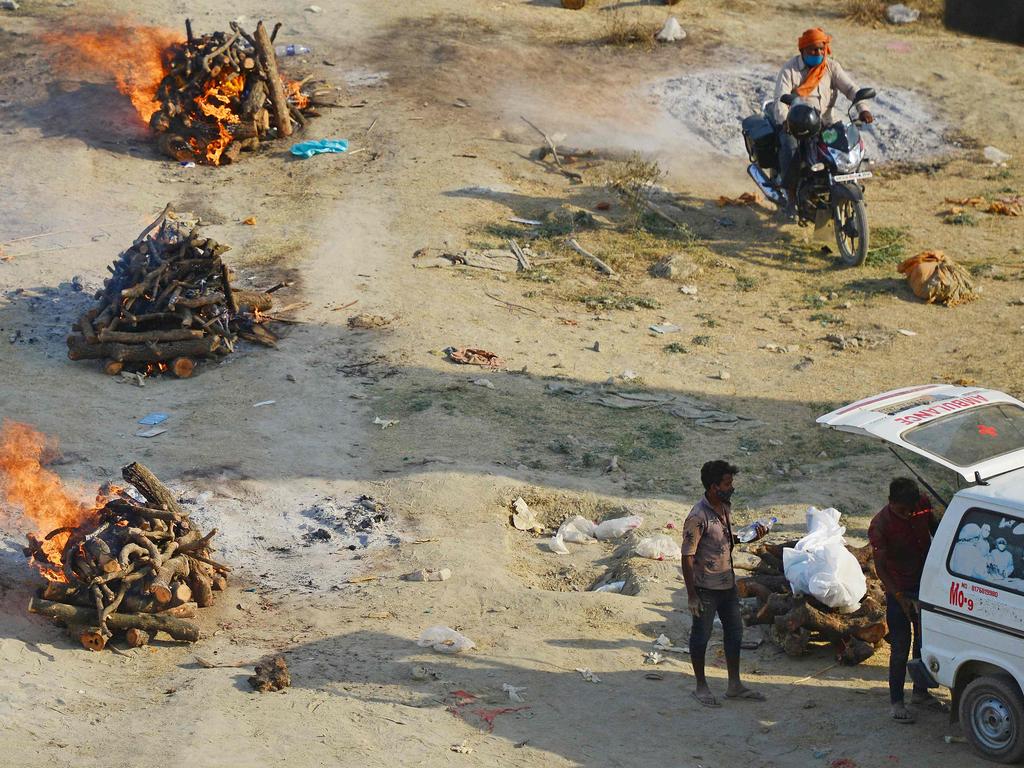
Wood is reportedly in short supply in places and some families are told to bring their own to burn.
The Delhi crematorium is dealing with so many bodies that it has been forced to expand into an adjacent car park.
“I have lost count,” a priest who works there told AFP of the number of dead brought to the facility. “We start at sunrise and cremations continue past midnight.”
Families mourn silently on the roadside as they wait the turn of their relatives wrapped in white cloth and garlands of yellow marigolds.
Wailing ambulances regularly bring more bodies. People in homes overlooking the crematorium live with the stench of burning bodies and the cries of grieving families.
For the past three days the crematorium has been performing more than 100 funerals a day,
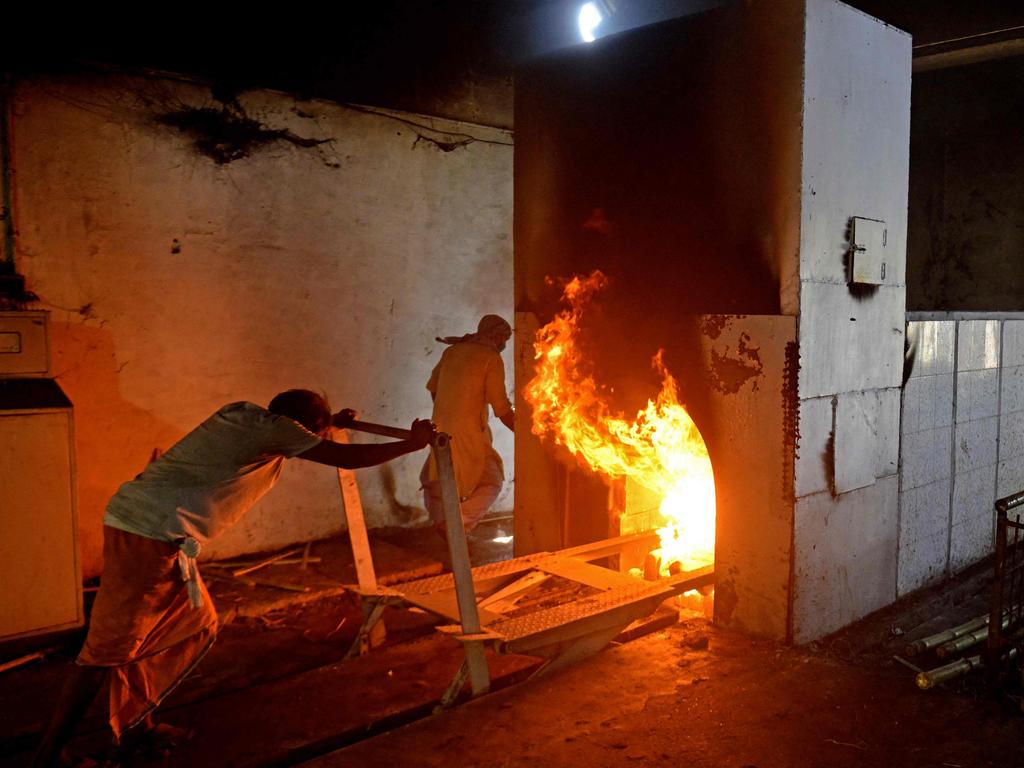
It comes as the first emergency medical supplies arrived in India on Tuesday as part of a global campaign to staunch the catastrophic wave of infections, with the United States also pledging to export millions of AstraZeneca vaccine doses.
Crates of ventilators and oxygen concentrators from Britain were unloaded at a Delhi airport early Tuesday, the first emergency medical supplies to arrive in the country where infection and death rates are growing exponentially.
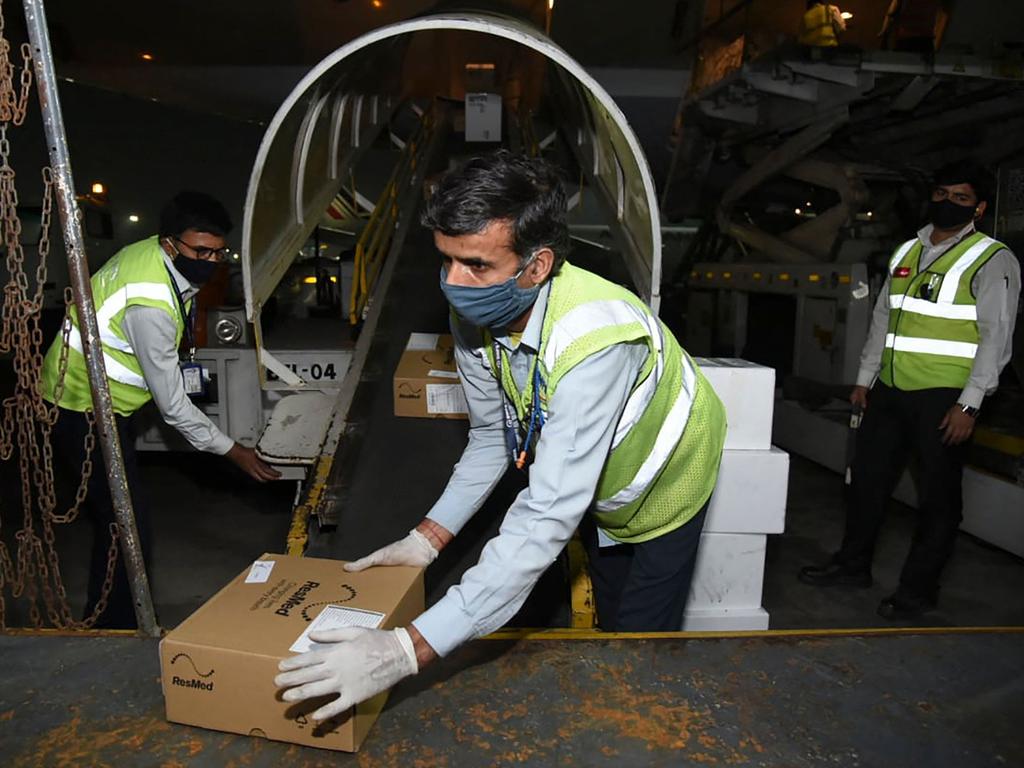
PASSENGER FLIGHTS FROM INDIA TO AUSTRALIA GROUNDED
All passenger flights from India have been grounded until mid-May after crunch national security talks, as the country grapples with the world’s worst COVID-19 outbreak.
Cabinet’s powerful national security committee met on Tuesday morning, agreeing to expand restrictions imposed on travel to and from India last week.
The country recorded 352,991 cases in a single day – the worst increase in any country since the pandemic began – as mass cremations sites were established in response to the mounting death toll.
Prime Minister Scott Morrison described the situation on the subcontinent as “truly heartbreaking”, confirming direct flights between India and Australia would be suspended until May 15.
“We share so much in common as peoples, as democratic nations, and we extend our deepest sympathies and condolences and support to the nation of India and the people of India,” he said.
“They are dear friends of Australia. We will stand with them during this terrible crisis, and for all Australians who were caught up in this terrible set of events.”
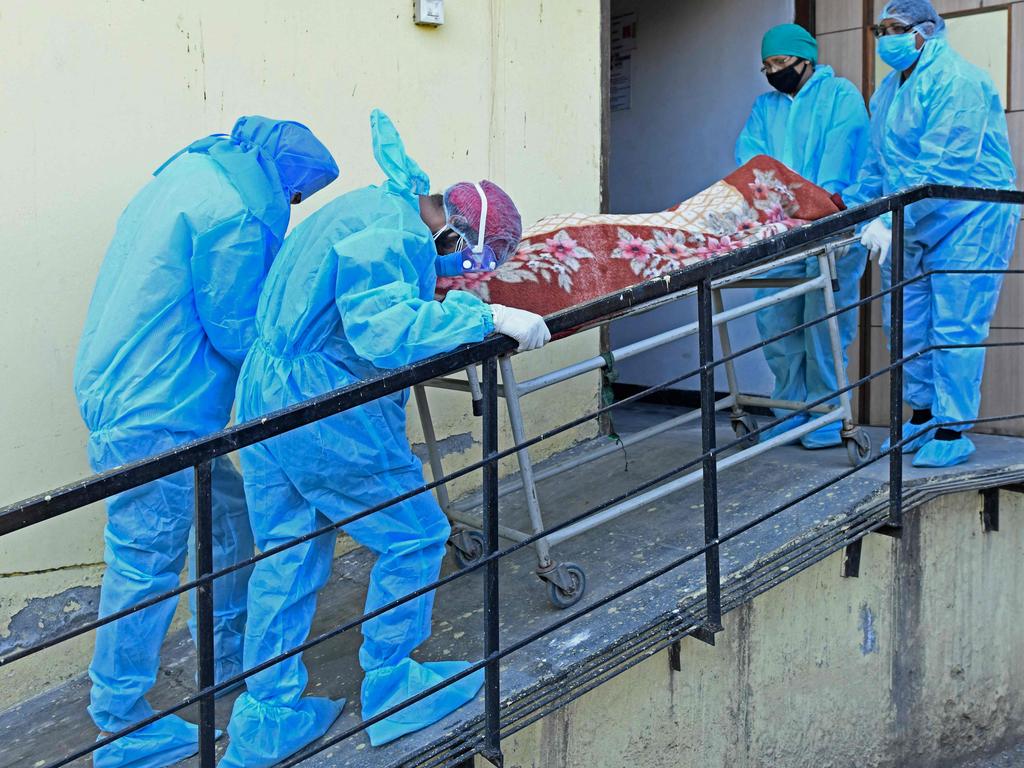
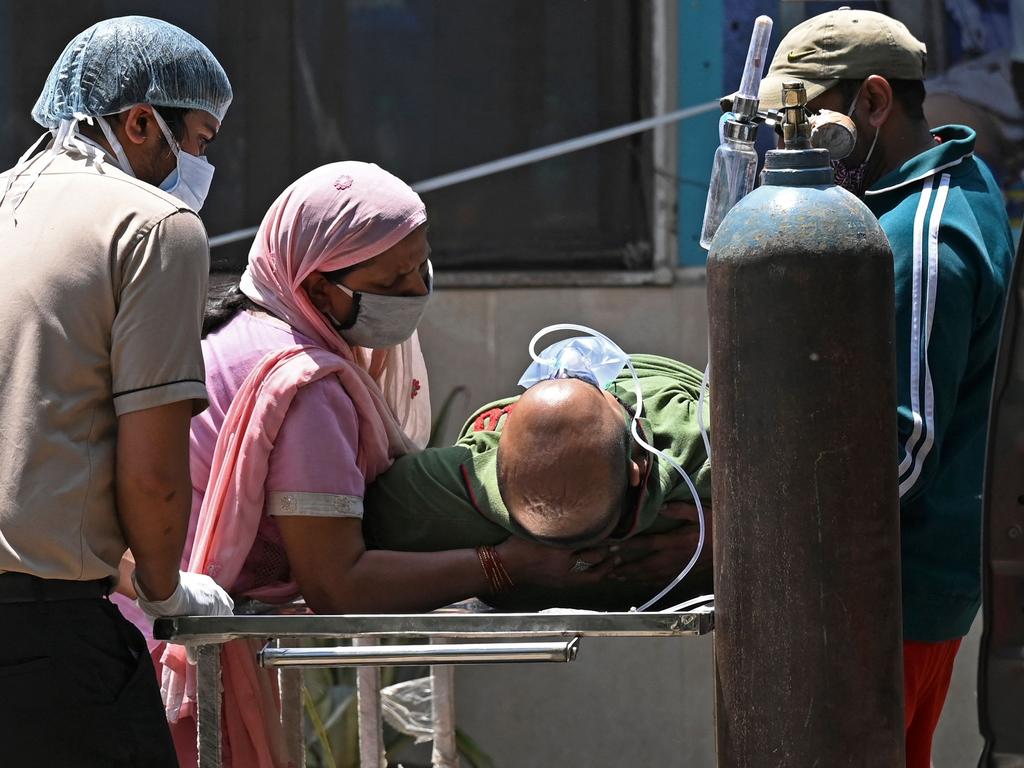
Indirect flights via Doha, Dubai, Singapore and Kuala Lumpur have also been paused by those countries.
A decision on whether to extend the suspension will be made prior to its expiration.
Nearly 20,000 Australians have returned from India since March last year when the pandemic began.
Mr Morrison said the “risk continues to grow” in India but rejected suggestions Australians were being abandoned.
“We don’t think the answer is to forsake those Australians in India and just shut them off as some others suggest. That’s not what my government is going to do,” he said.
“We will stand with the Indian community here, and our friends in India, as one of our closest and most strategic partners.”
The Prime Minister said the government would work to restart repatriation flights as soon as possible and it would focus on the most vulnerable.
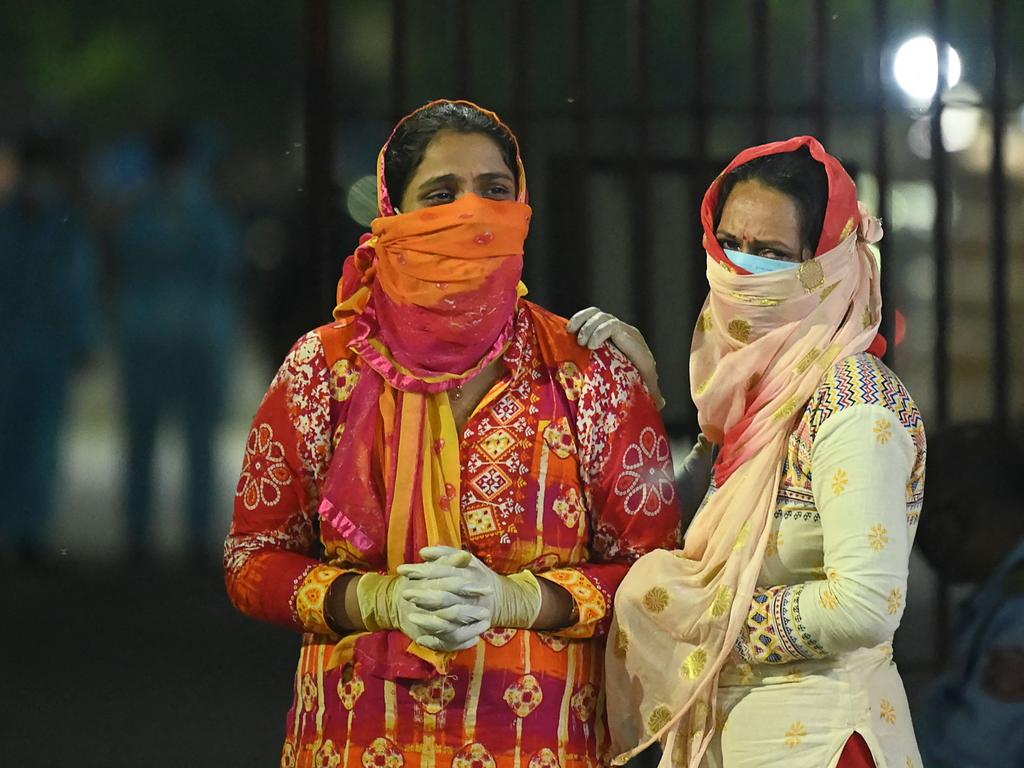
As a result of the move, Mr Morrison said two passenger flights from India into Sydney, and two repatriation flights into Darwin scheduled for this week would be cancelled, affecting about 500 passengers.
Foreign Minister Marise Payne said eight repatriation flights scheduled to return from India in May would be paused.
Once flights resume, travellers booked on these flights would need to produce a negative COVID-19 PCR test and rapid antigen test in order to travel.
Minister Payne revealed 9000 Australians in India were registered with DFAT and consular support would continue.
She said the number looking to return to India had spiked since last week when flights were slashed by a third.
“I expect that to increase but we will stay in close contact with those Australians and provide the support that we are able to,” she said.
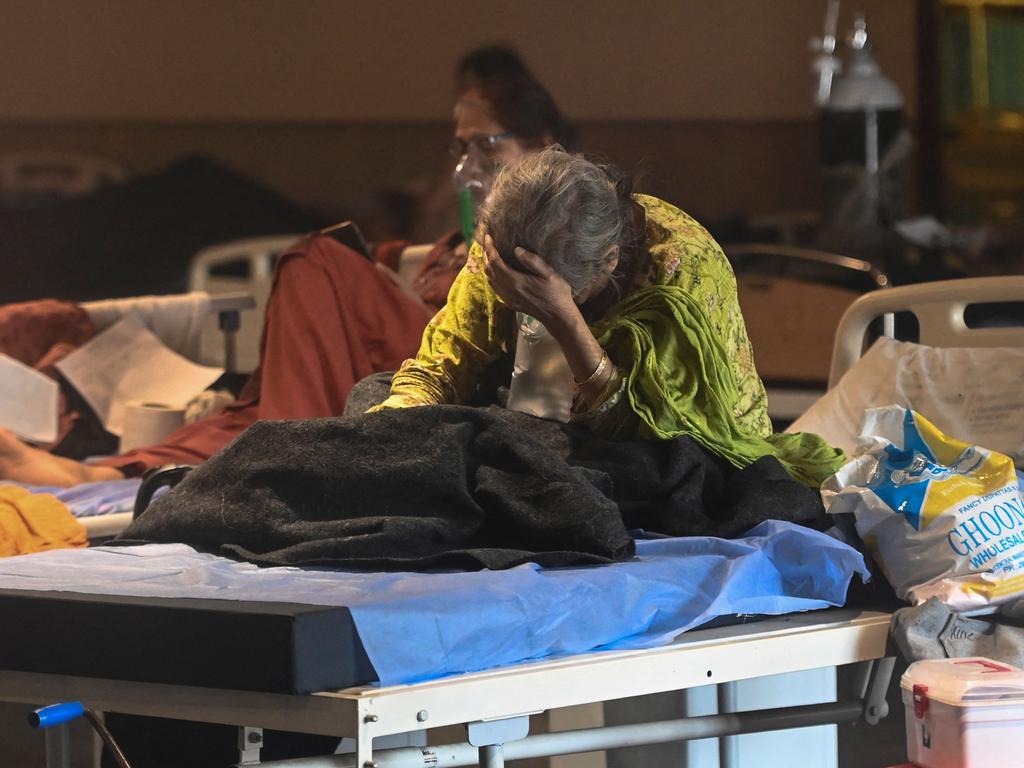
The Prime Minister confirmed Australia would also ship medical supplies as part of a beefed-up humanitarian effort to aid India.
The shipments will include one million surgical masks, 500 non-invasive ventilators, along with gloves and goggles.
“Australia has obviously had a very different experience and that places us in a unique position among many countries to lend our support the India at this time,” Mr Morrison said.
Mr Morrison also confirmed Australian cricketers in India to compete in the Indian Premier League would not be prioritised for return.
“They’ve travelled there privately … This wasn‘t part of an Australian tour, and they’re under their own resources, and they’ll be using those resources I’m sure to see them returned to Australia,” he said.
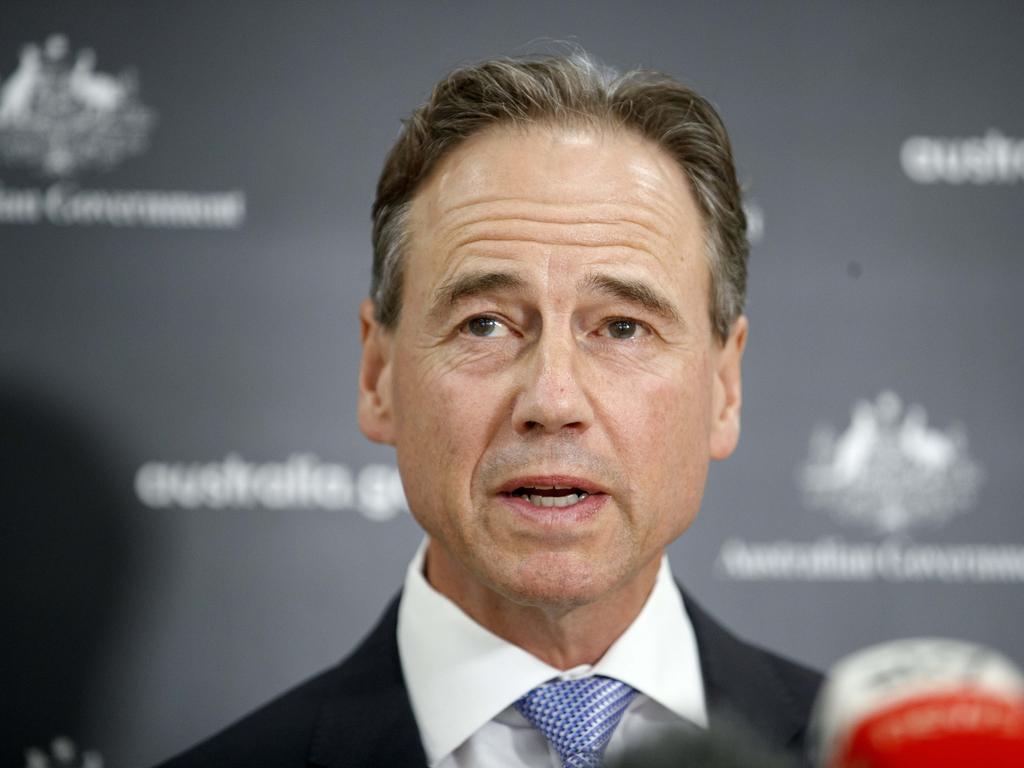
Health Minister Greg Hunt said on Monday the government would continue to follow the medical advice, having already made the “difficult decision” to limit flights.
“If more is required then more will be delivered,” he said.
Mr Hunt said India was “literally gasping for air” and that they had requested assistance with supplies of ventilators.
Mr O’Farrell said that while about 17,000 Australians had flown home from India over the last year, the list of those wanting to return had grown during the deadly new outbreak.
A man who had travelled to and from India over summer for his wedding tested positive to COVID-19 in quarantine in Perth earlier this month, before the virus infected others in the hotel and sparked the city’s three-day lockdown over the weekend.
Mr Hunt said exemptions for overseas travel were only provided “for the most profound humanitarian or compassionate reasons”.
News Corp Australia understands thousands of Australians had been flying to India each month before the national cabinet last week agreed to further restrict outbound travel exemptions.
VIC JOINS WA PUSH FOR QUARANTINE FACILITIES
Victoria’s Acting Premier James Merlino has attacked the federal government over hotel quarantine and declared the Commonwealth should have set up its own facilities for travellers over the past 12 months.
In a sign of tensions ahead of next week’s national cabinet, Mr Merlino joined Western Australian Premier Mark McGowan in criticising the Prime Minister’s handling of international arrivals.
The states agreed at national cabinet they would run the program but as the pandemic has dragged on leaders have begun to push back and call on the Commonwealth to play a bigger role.
Earlier this week, Mr McGowan said the Morrison Government should be offering up quarantine facilities rather than relying on those provided by the states.
When asked whether he agreed with these sentiments, Mr Merlino today said quarantine was a federal government responsibility.
“That’s the fact of the matter,” he said.
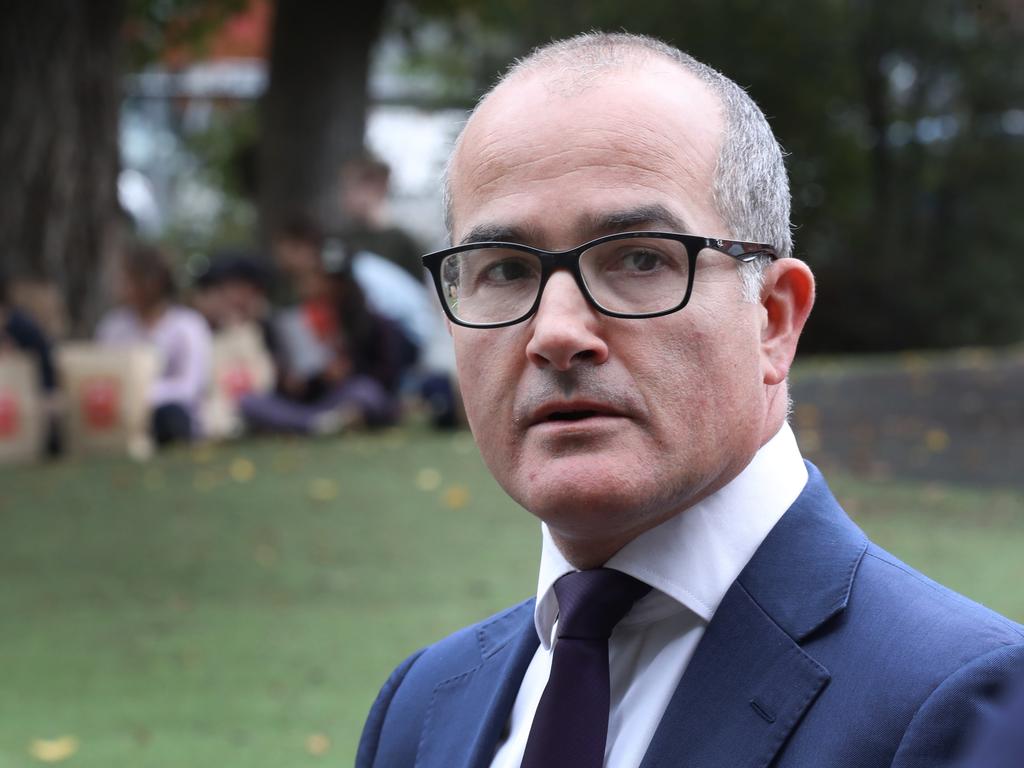
“We stepped up more than 12 months ago (and) committed to establish and running hotel quarantine because there was no equivalent large-scale quarantine facility,” he said.
“But we are more than 12 months in and you would think that the Commonwealth would have made serious plans to establish not one, but a number of federally run Commonwealth-run quarantine facilities.
“That simply has not happened … It is a frustration for states and territories across the country.”
When asked about the fact that leaders from each state had already agreed to run hotel quarantine, Mr Merlino reiterated that this was because they did not have other options at the time.
“That doesn’t mean that the constitutional responsibility for quarantine does not lie with the federal government,” he said.
The state is expected to announce the location of a new purpose-built quarantine facility away from the CBD at the end of this week.
Authorities have been considering 10 possible locations and proposals, including the construction of buildings on land owned by Avalon Airport and Melbourne Airport.
Health Minister Martin Foley said the ongoing coronavirus crisis in India was also a major concern, with discussions underway about what help Victoria could provide.
“What’s happening in India is a humanitarian catastrophe and all the public health advice we’ve got is that it’s going to run and increase for some time yet,” he said.
“We’ve seen an increasing number of returned travellers from the subcontinent turning positive at twice the rate of other returnees.
‘We’re seeing those returnees disproportionately test negative on day zero, the day they get here, which raises some uncertainty as to the testing and infectivity levels of the pandemic in the Indian subcontinent.
“I’ve asked my secretary to work closely with the Commonwealth secretary about support whether it be ventilators, whether it be medicines, whether it be whatever.”
OXYGEN TRAINS IN RACE TO SAVE LIVES
Special trains carrying oxygen tankers have been sent to needy states in India, as the country’s COVID-19 crisis grew with infections and deaths hitting record highs.
The healthcare system has struggled to cope with the huge surge, with reports of severe oxygen and medicine shortages and patients’ families pleading for help on social media.
India recorded 349,691 new cases and 2767 deaths in the past 24 hours – the highest since the start of the pandemic.
“Air, Rail, Road & Sea; Heaven & earth are being moved to overcome challenges thrown up by this wave of COVID-19,” Health Minister Harsh Vardhan said on Twitter.
Local media reports the first Oxygen Express bound for New Delhi – the worst-hit area – was due to arrive on Monday night (local time), carrying 70 tonnes of liquid medical oxygen from a steel plant.
Indian Railways said oxygen supplies were transported by train from Mumbai across the country — carrying a total of nearly 150 tonnes of liquid oxygen.
Oxygen tanks were also transported from Hapa town in the state of Gujarat to the Kalamboli area of Maharashtra on Sunday.
‘BEYOND HEARTBREAKING’: WHO
The World Health Organisation chief voiced alarm Monday at India’s record-breaking wave of COVID-19 cases and deaths, saying the organisation was rushing to help address the crisis.
“The situation in India is beyond heartbreaking,” Tedros Adhanom Ghebreyesus told reporters.
He spoke as India battles a catastrophic coronavirus wave that has overwhelmed hospitals, with crematoriums working at full capacity.
A surge in recent days has seen patients’ families taking to social media to beg for oxygen supplies and locations of available hospital beds, and has forced the capital New Delhi to extend a week-long lockdown.
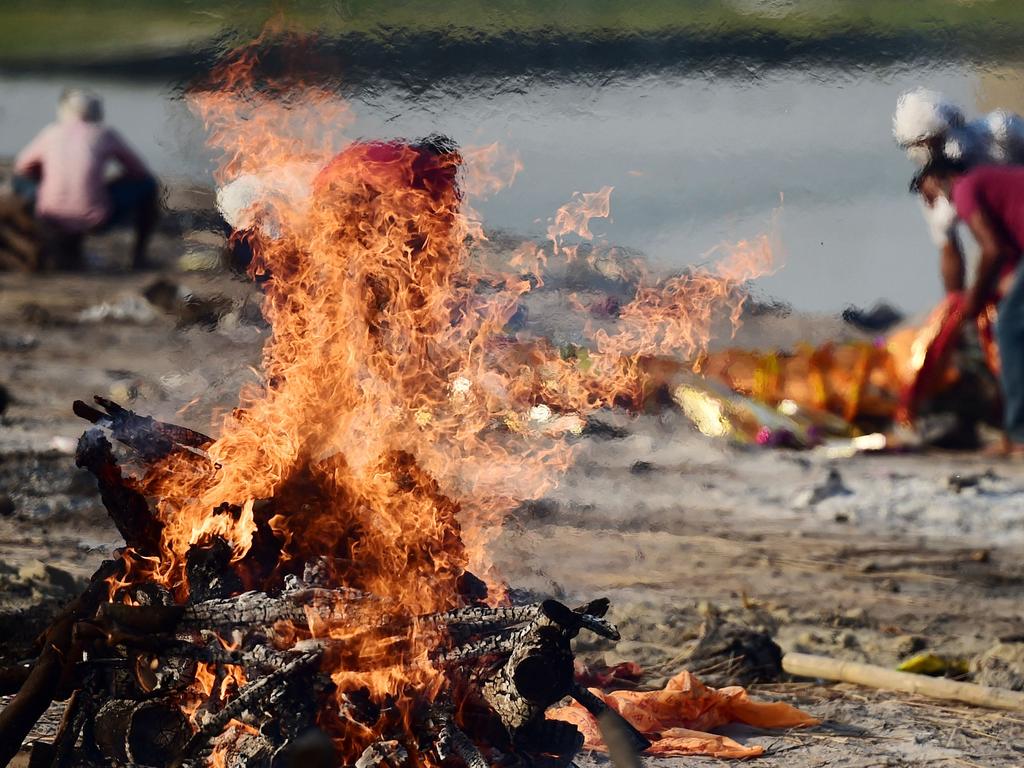
“WHO is doing everything we can, providing critical equipment and supplies,” Tedros said.
He said the UN health agency was among other things sending “thousands of oxygen concentrators, prefabricated mobile field hospitals and laboratory supplies”.
The WHO also said it had transferred more than 2,600 of its experts from various programs, including polio and tuberculosis, to work with Indian health authorities to help respond to the pandemic.
The country of 1.3 billion has become the latest hotspot of a pandemic that has killed more than three million people worldwide, even as richer countries take steps towards normality with accelerating vaccination programs.
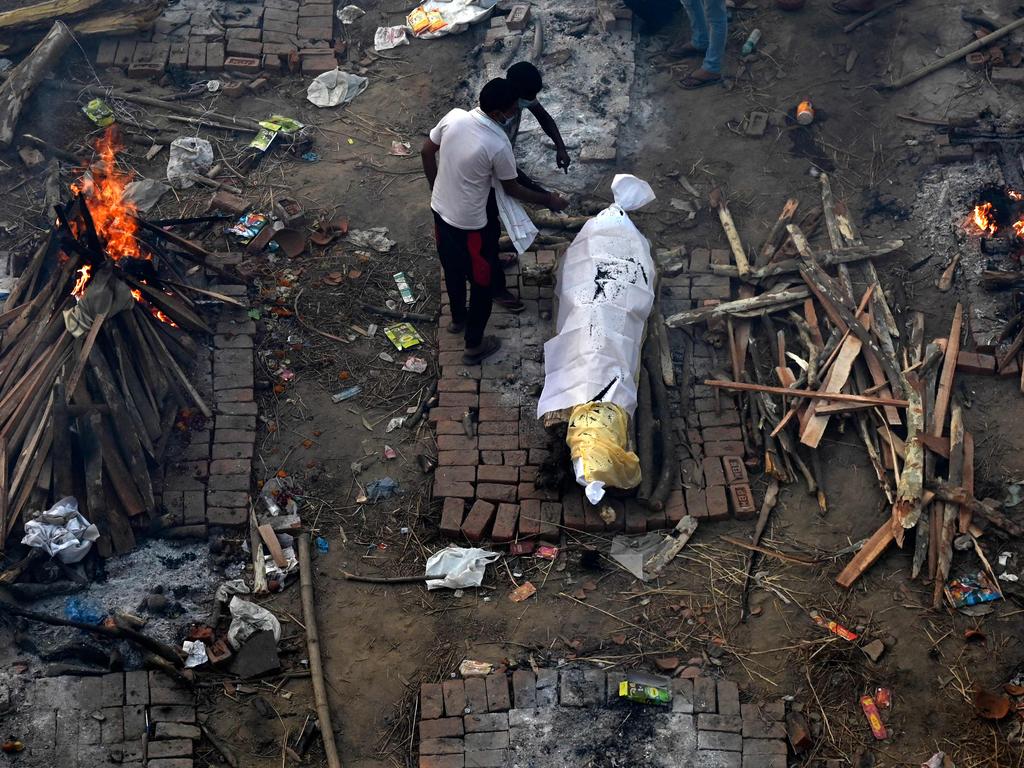
The US and Britain rushed ventilators and vaccine materials to help India weather the crisis, while a range of other countries also pledged support.
A day-after-day surge has seen patients’ families take to social media to beg for oxygen supplies and available hospital beds, forcing the capital New Delhi to extend a week-long lockdown.
India’s 1.3 billion population has become the global hotspot of a pandemic that has killed more than three million people, even as richer countries take steps towards normality with quickening inoculation programs.
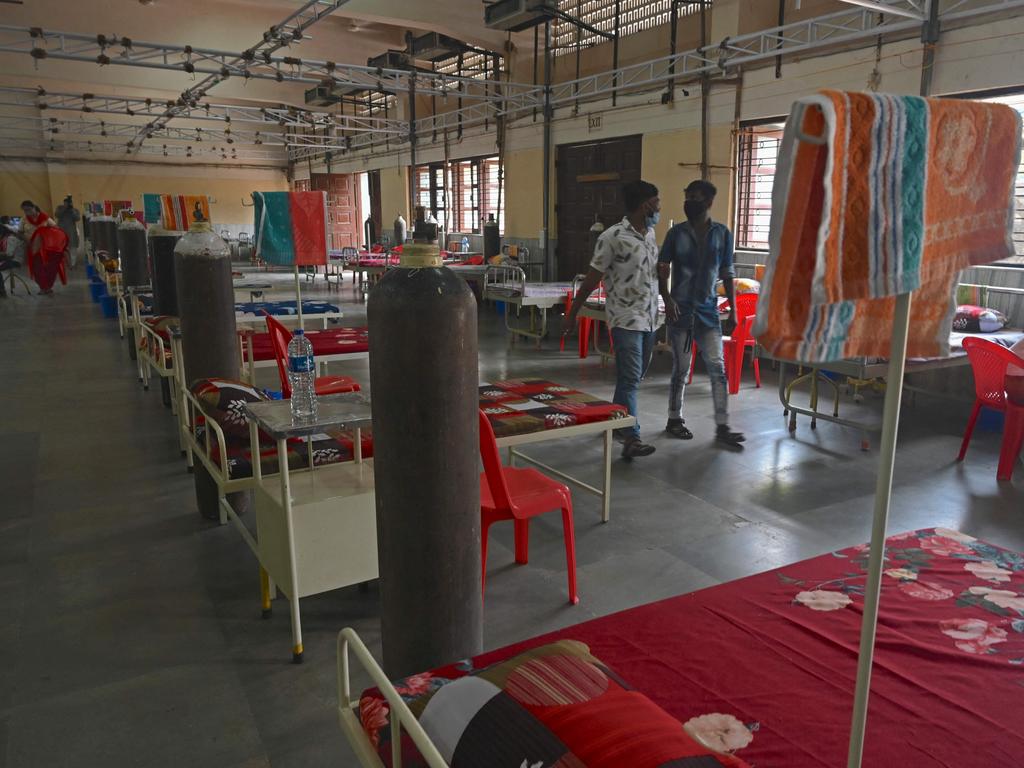
Irfan Salmani told reporters he had been going from hospital to hospital around Delhi for three days, searching for oxygen for his sister.
“I’ve never seen anything so terrible,” he said. “I’ve been trying non-stop. I’ve just been facing rejection after rejection.”
France, Germany and Canada have also pledged support to India, which has driven increases in global case numbers in recent days, recording 352,991 new infections and 2812 deaths on Monday – its highest tolls since the start of the pandemic.
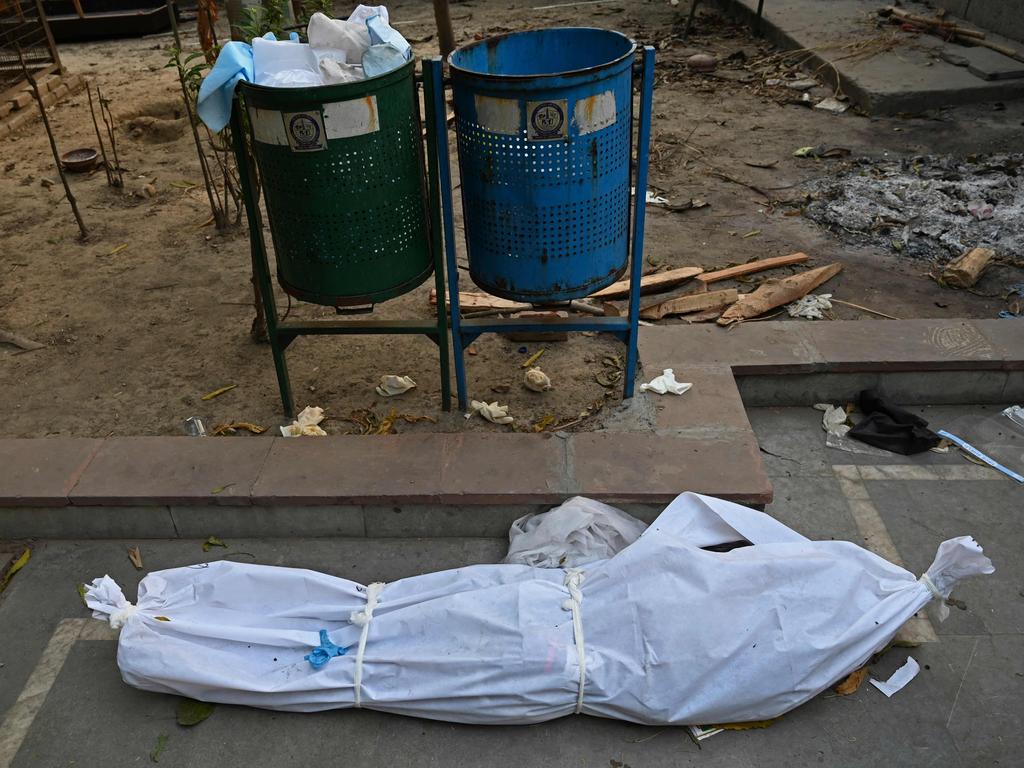
RUSHING TO HELP
The first of nine airline container-loads of supplies from the UK, including ventilators and oxygen concentrators, was set to arrive in India early Tuesday local time, British Prime Minister Boris Johnson said, pledging the UK would do “all it can” to help.
In the US, the White House said it was making vaccine-production material, therapeutics, tests, ventilators and protective equipment immediately available to India.
But it did not mention whether it would send any of the 30 million AstraZeneca vaccine doses it holds in surplus, sparking accusations of hoarding.
India’s Hindu-nationalist government faces growing criticism for allowing mass gatherings across the country in recent weeks, with millions attending religious festivals and thronging political rallies.
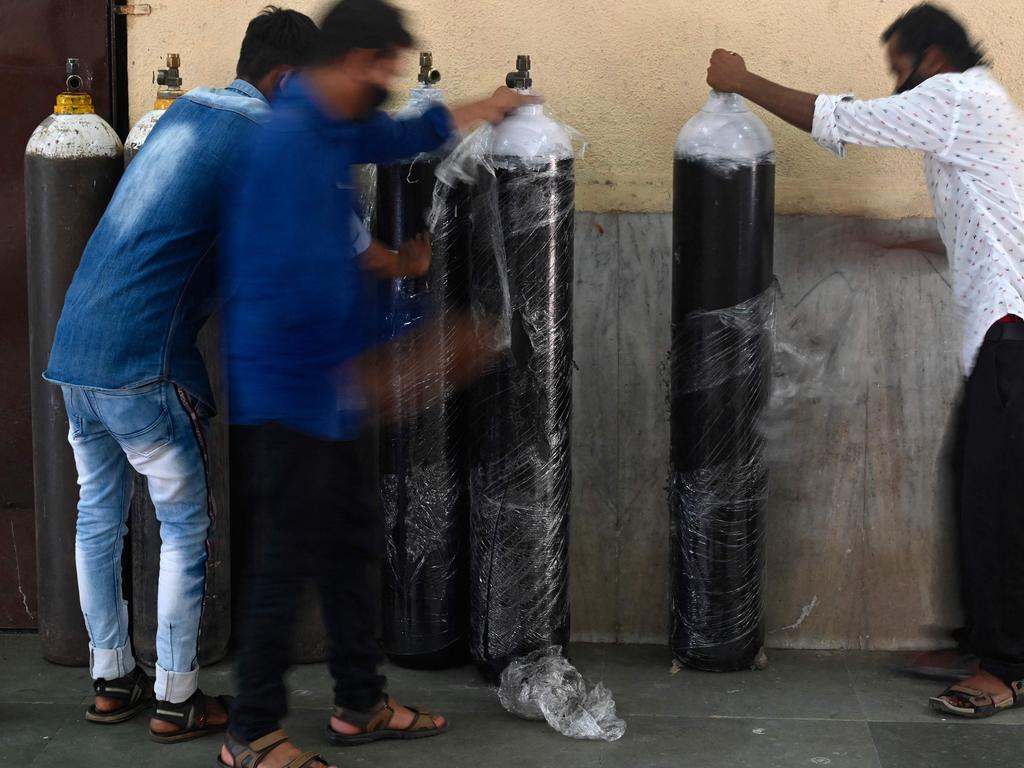
INDIA VOWS TO USE DEATH PENALTY OVER DELAYS
Earlier, India vowed to “hang” anyone who delays the delivery of oxygen supplies as the country’s COVID-19 crisis grew with infections and deaths hitting record highs.
The healthcare system has struggled to cope with the huge surge, with reports of severe oxygen and medicine shortages and patients’ families pleading for help on social media.
India recorded 349,691 new cases and 2767 deaths in the past 24 hours – the highest since the start of the pandemic.
A high court in New Delhi today warned it would use the death penalty after officials intercepted and diverted oxygen tanks to desperate hospitals in their areas.
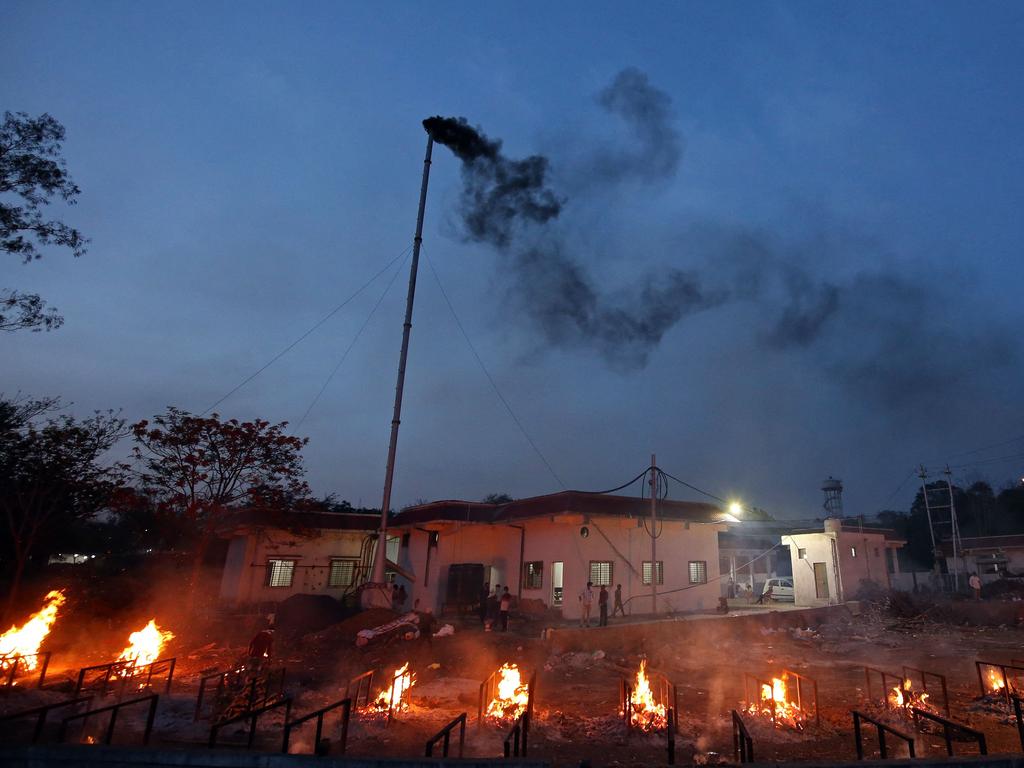
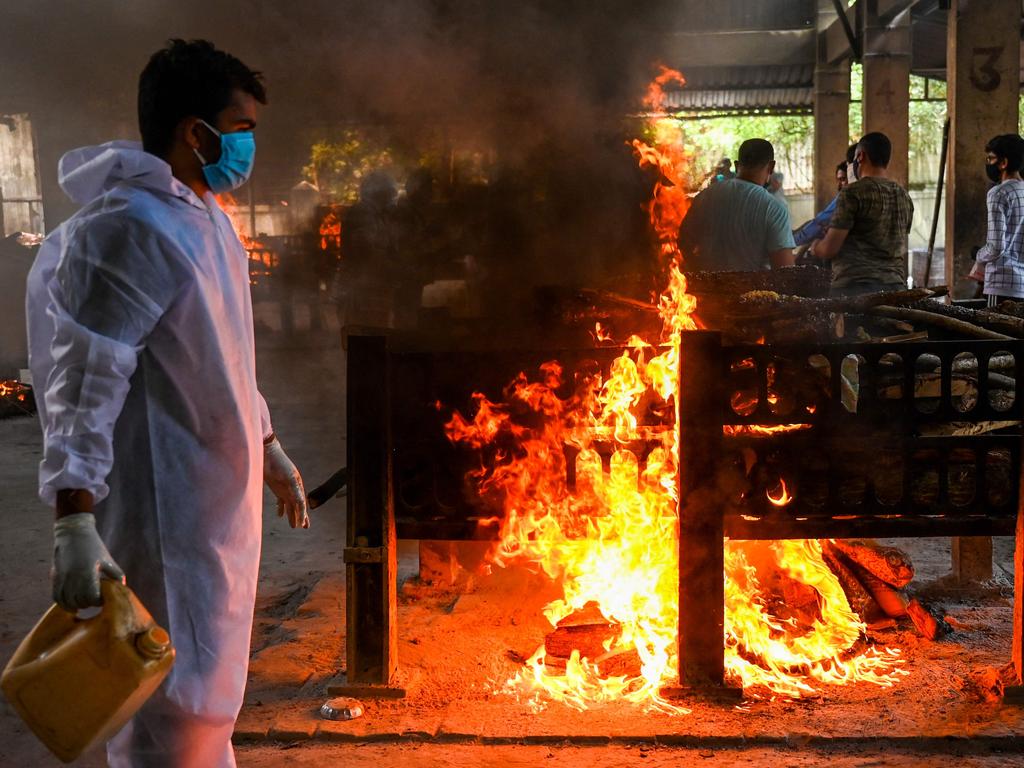
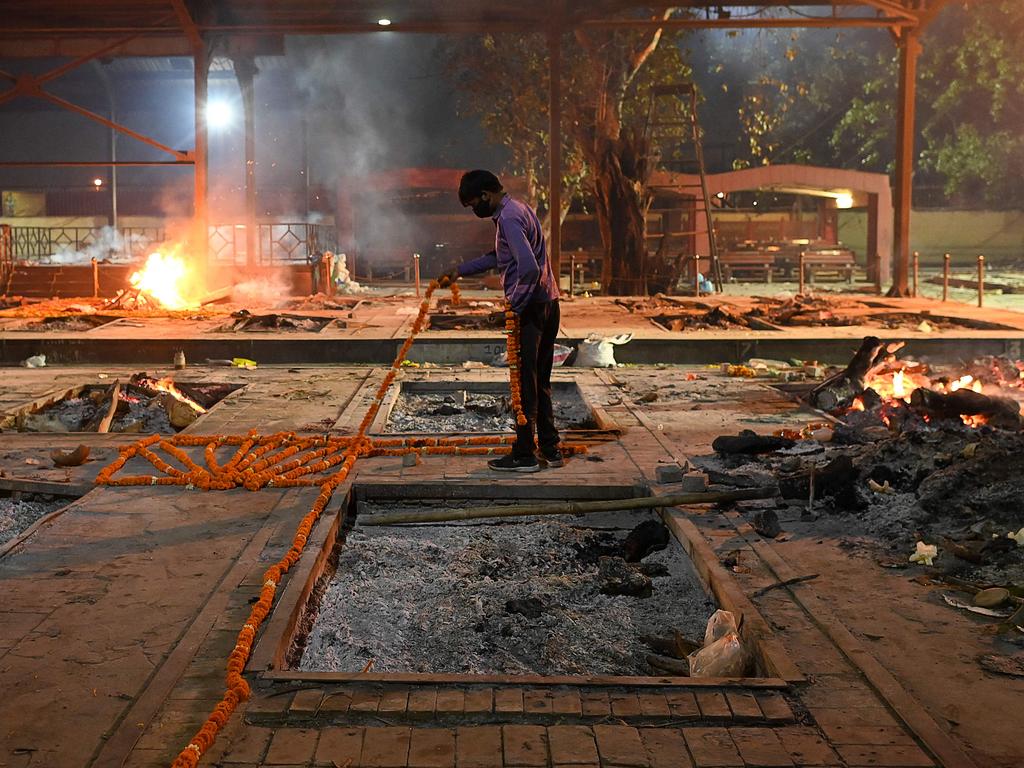
“India is literally gasping for oxygen. And while we can assist with the national medical stockpile, their particular request is for assistance with regards to the physical supply of oxygen. And that will be one of the things we are looking at, in particular with the states,” Mr Hunt said.
“We are in a position to be able to supply non-invasive ventilators. We are in a strong position on that front because we don’t need them at this point in time. We will still keep them in reserve but if they can be of assistance than equally we have reached out to the states who actually carry the suppliers of oxygen, to see whether there is any spare capacity that might be provided.”
India’s capital – home to 20 million people and the worst hit in India – imposed a week-long lockdown on Monday.
“We have decided to extend the lockdown by one week,” Delhi Chief Minister Arvind Kejriwal said.
“The havoc of corona(virus) continues and there is no respite.”
Crematoriums are so overwhelmed the government is permitting families to cremate or bury their loved ones in their own farms, land or gardens.
Karnataka Chief Minister B. S. Yediyurappa said: “It is prudent to swiftly and respectfully dispose the body in a decentralised manner keeping in view the grieving circumstance and to avoid crowding in crematoriums and burial grounds.”
Prime Minister Narendra Modi said in his monthly radio address that India had been shaken by a “storm” as he called on people to get vaccinated and not “get swayed by any rumour about the vaccines”.
The country has administered almost 141 million vaccine shots so far, but experts say the mass inoculation program needs to be significantly stepped up in the nation of 1.3 billion people.
There has been growing criticism of Modi’s government over allegations it was caught underprepared ahead of the surge.
On Sunday, Twitter confirmed it withheld dozens of tweets critical of the crisis after a legal demand from New Delhi.
“If (the content) is determined to be illegal in a particular jurisdiction, but not in violation of the Twitter rules, we may withhold access to the content in India only,” the social media giant said in a statement.
Some tweets included comments, including from regional opposition politicians, about the overwhelmed healthcare system.
The IT ministry told AFP it asked Twitter to remove 100 posts, adding that there was “the misuse of social media platforms by certain users to spread fake or misleading information and create panic about the COVID-19 situation in India”.
INTERNATIONAL HELP
Shocking stories of patients dying outside hospitals have spurred promises of support from the international community.
The White House said on Sunday that the United States would “immediately” make supplies of vaccine-production material, as well as therapeutics, tests, ventilators and protective equipment, available to India.
But it did not mention whether the US would send millions of surplus AstraZeneca vaccine doses to India, after top US pandemic adviser Anthony Fauci on Sunday said that would be considered.
The United States has around 30 million doses of the low-cost AstraZeneca vaccine that are not approved for use in the country.
Dr Fauci told ABC’s This Week news program the idea of sending them to India will be “something that is up for active consideration.”
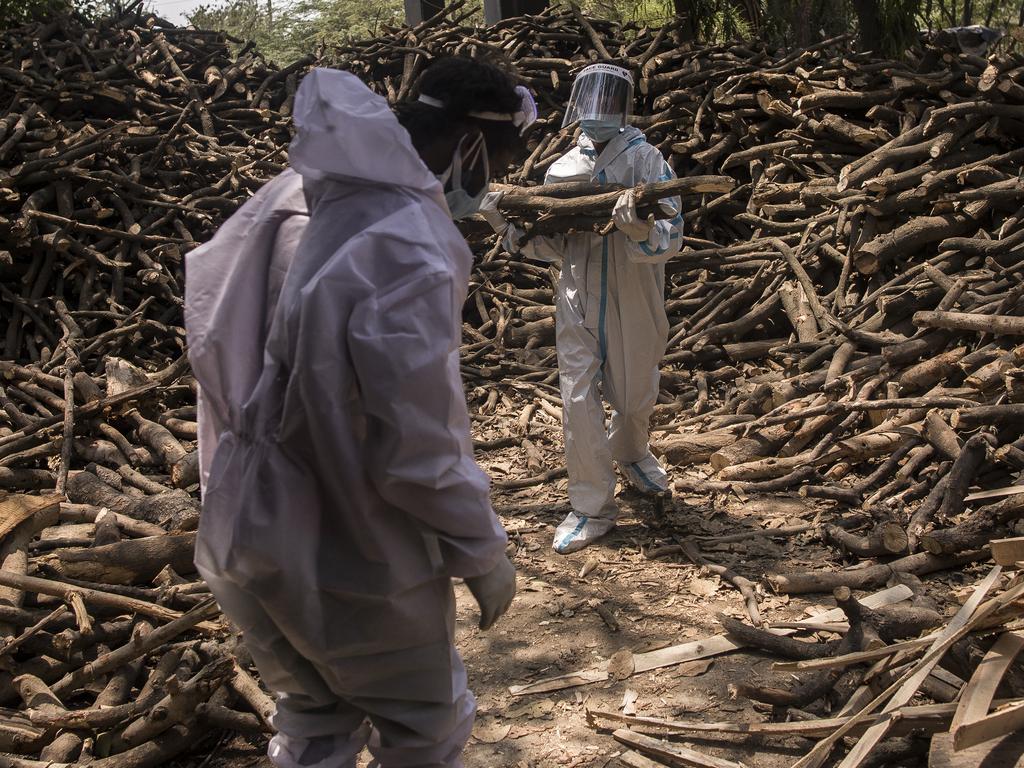
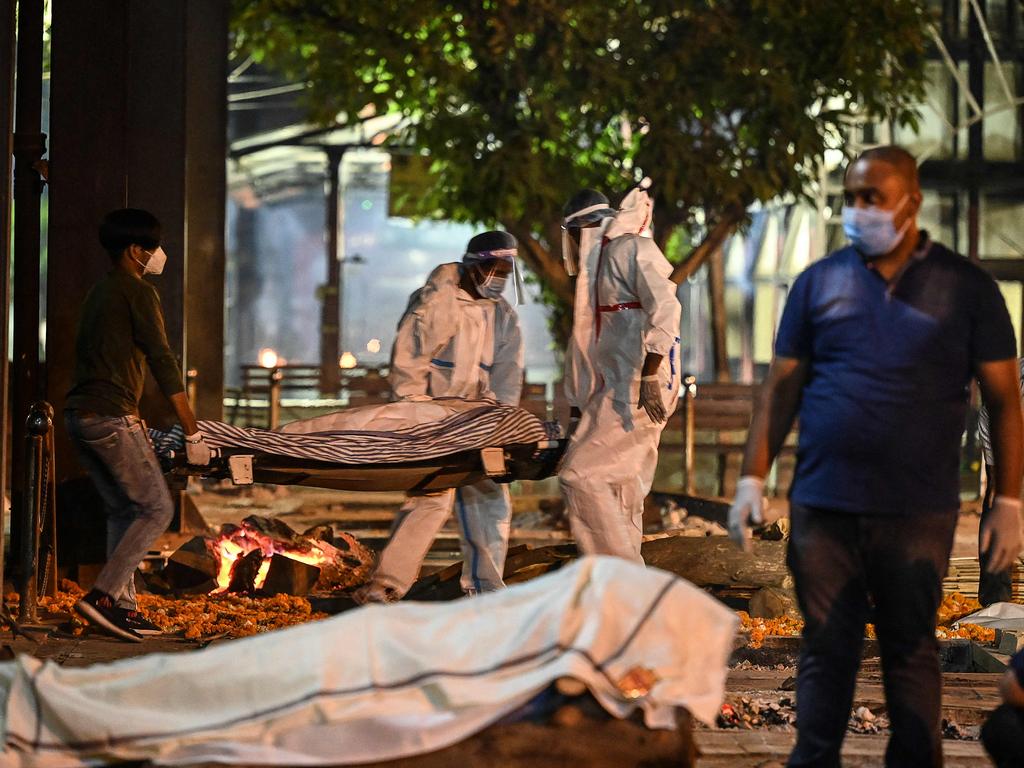
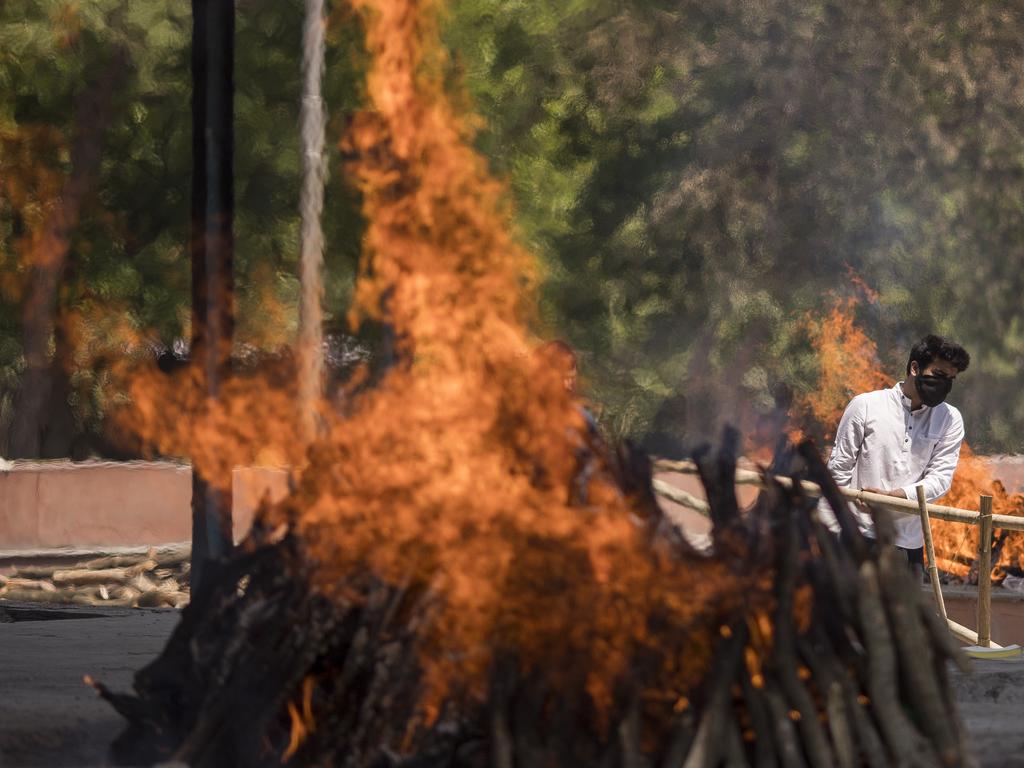
The AstraZeneca vaccine, along with the single-shot Johnson & Johnson vaccine, is suspected of causing very rare but serious blood clots in a handful of cases, but is approved for use in many countries including India.
European nations including Britain, France and Germany have also pledged help.
Arch-foe Pakistan offered medical equipment and supplies after Prime Minister Imran Khan tweeted prayers for a “speedy recovery”.
Other countries imposed travel restrictions. Thailand on Sunday became the latest country to bar foreigners departing India from entering.
Neighbouring Bangladesh, which shares a 4000km border with India, will halt land crossings for two weeks from Monday, Foreign Minister A.K. Abdul Momen told AFP on Sunday.
Australia is aware of the battle India is facing.
“Australia sends solidarity to our friends in India as it tackles this latest COVID-19 outbreak,” Foreign Minister Marise Payne said.
“India’s generosity and leadership in providing vaccines to our region is appreciated. We will continue to work together closely to respond to this global crisis”.
OXYGEN CRISIS
The Indian Express reported on Sunday that Vinod K. Paul, a member of government advisory body NITI Aayog, warned in a presentation to the prime minister and state leaders on Friday that daily cases could rise to as high as half a million by mid-May.
Some states and territories have imposed curbs on movement and activities, with Indian-administered Kashmir on Saturday announcing a weekend lockdown.
Ambulance sirens echoed through empty streets in the northern city of Lucknow in India’s most populous state, badly hit Uttar Pradesh, during its weekend lockdown.
“No one’s answering … calls. Where do I take the patient to?,” Abhishek Gaurav, 40, told AFP as he searched for a hospital bed for his friend in Lucknow.
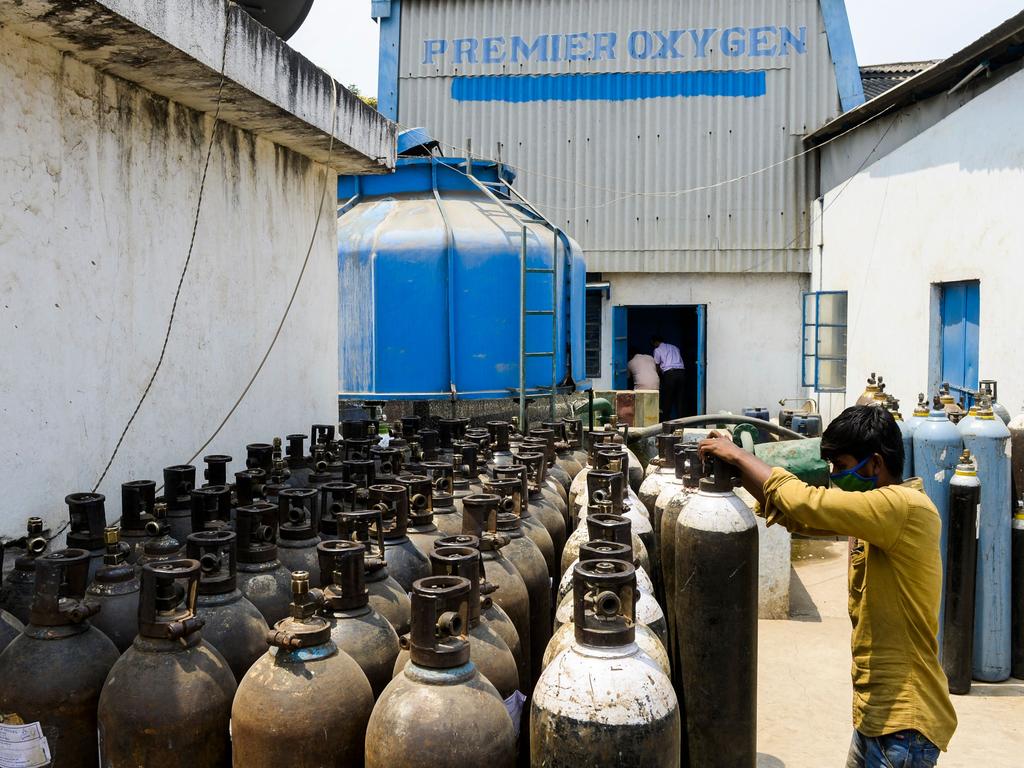
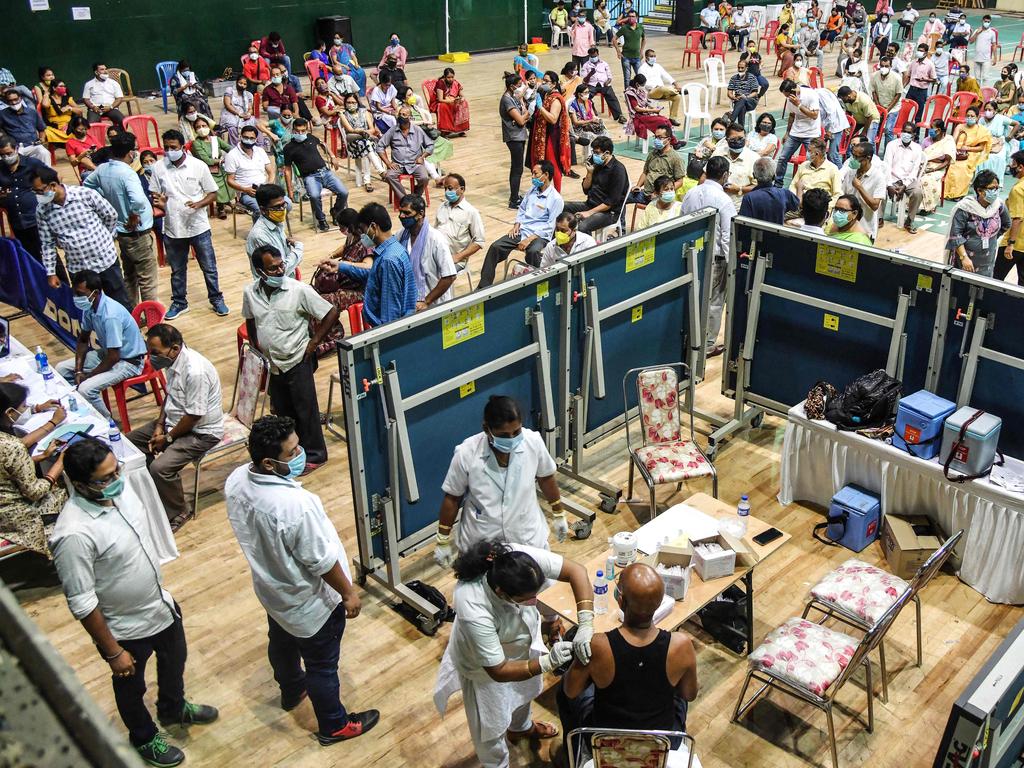
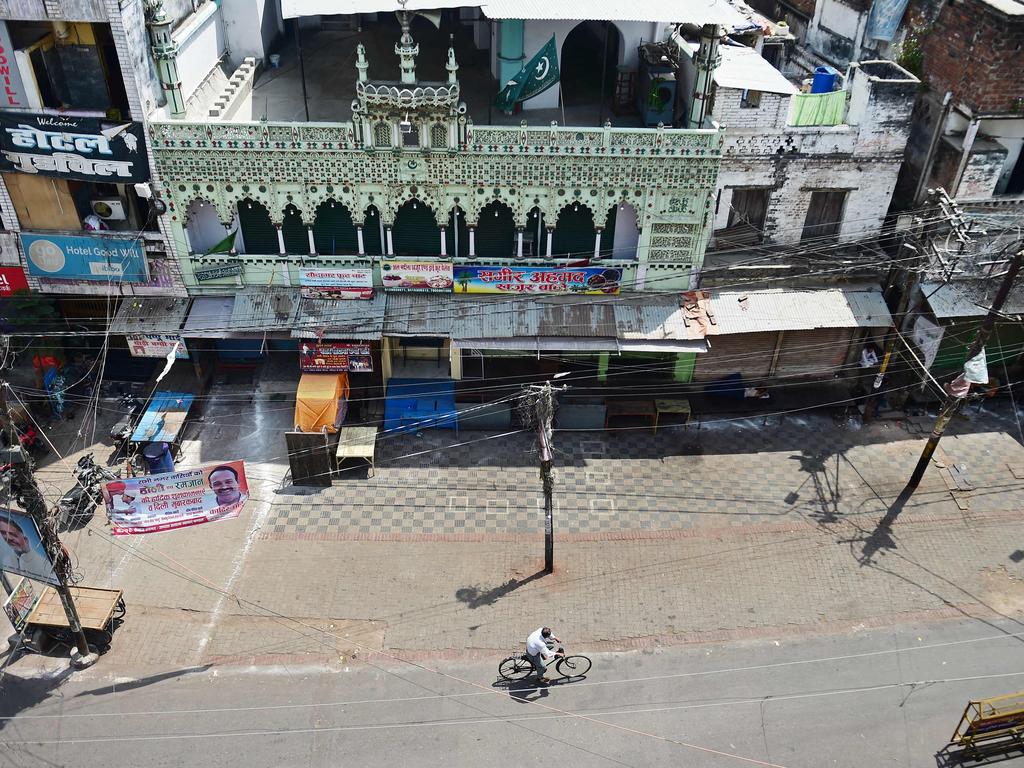
His pleas were echoed by others.
In Delhi, there were chaotic scenes outside some hospitals.
“He was gasping for air, we removed his face mask and he was crying and saying ‘save me, please save me’,” Mohan Sharma, 17, said of his father, who died outside a northeast Delhi hospital.
“But I could do nothing. I just watched him die,” Sharma told AFP.
The government said Sunday that more than 500 oxygen-generation plants were to be set up in hospitals.
Oxygen supplies were also being bolstered through special trains and airlifts of containers from other countries.
More Coverage
Originally published as India’s COVID crisis: Travel between India and Australia paused as COVID crisis worsens




